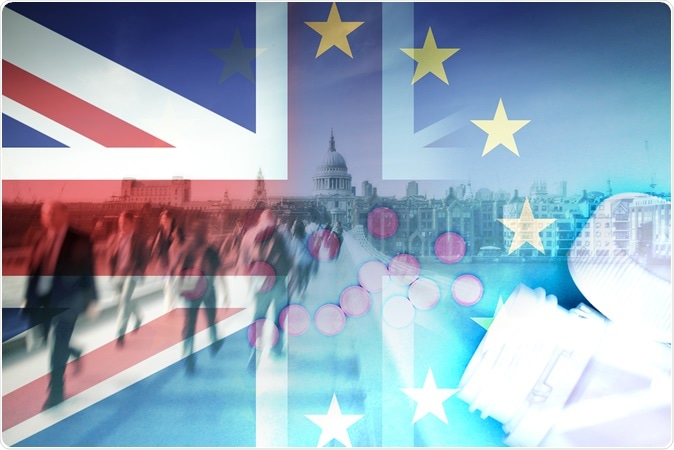A new study has shown that use of antidepressants have risen in England after the United Kingdom voted to leave the European Union. There has also been a sharp fall in prescription of other medications, the study notes.
The results of the study were published in the latest issue of the Journal of Epidemiology and Community Health.

Image Credit: Melinda Nagy / Shutterstock
The team of researchers from King’s College London have said that this study shows the effect of political changes, financials upsets and elections on mental health of the population. More needs to be done to improve and protect mental health they add.
The team looked at the effects of Brexit on drug prescribing since June 2016. They noted that there has been a slow and steady rise in antidepressant prescribing. Unexplained drop in other prescription drugs has also been seen during this period.
Dr Sotiris Vandoros, the study’s lead author said that this study could be interpreted in various ways. He said, “On one hand the increases in antidepressant prescribing year on year are slowing down [in 2016]. But if you look at the control group medications, which were also increasing year on year, in 2016 they started decreasing.” He gave a plausible explanation that Brexit may have caused a large amount of uncertainty and debate that may have made the people “too distracted to fill prescriptions”. The other control drugs chosen were drugs for gout and iron supplements. Antidepressant use however rose steadily. “While the same effect would hold for antidepressants as well, it could have been outweighed by increasing numbers seeking support for mental health. But we can’t be sure,” he said.
The team from King’s College London and Harvard University in the US used data from GP practice prescribing and looked at all the doses per person per month in each of the 326 voting regions between 2011 and 2016. Iron tablet prescriptions and anti-gout medications were chosen as controls to the antidepressant prescriptions because these were “unlikely to be associated with uncertainty and depression”.
After the June 2016 referendum, the antidepressant prescriptions rose but the other two declined. Compared to the other two drugs, the antidepressant prescriptions rose by 13.4 percent, wrote the researchers. “There are alternative possible explanations, and we cannot be sure that this relative increase in antidepressants is due to the referendum result,” the study notes. The results remained uniform in regions irrespective of their voted for or against the Brexit.
Experts have suggested that caution might be applied before these results are interpreted. They have said that there has been a rise in antidepressant use with more people seeking help than before. This could be irrespective of the political situations. Anxiety disorders too are treated with some of the antidepressants and there could be a rise in anxiety disorders too said the experts.